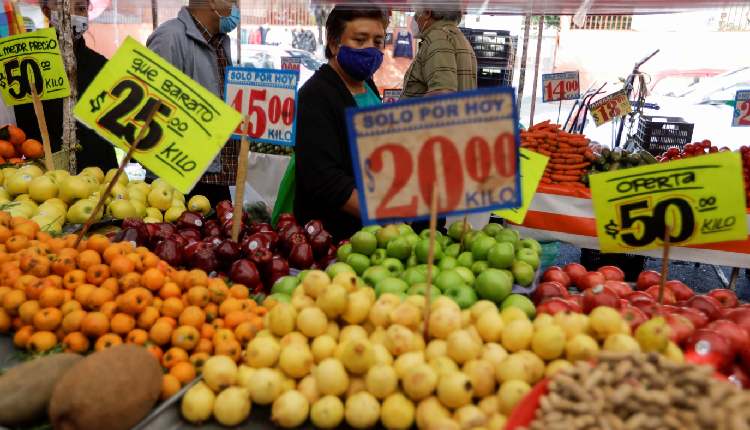Mexico’s inflation exceeded expectations in the first half of April, likely solidifying the decision to maintain interest rates at the central bank’s May monetary policy meeting.
According to Bloomberg citing official figures released on Wednesday consumer prices increased by 4.63 per cent year-on-year (YoY), surpassing all estimates from a Bloomberg survey, which had a median forecast of 4.51 per cent. Core inflation, excluding volatile items like food and fuel, moderated to 4.39 per cent.
Persistent price pressures have complicated analysts’ attempts to gauge whether the interest rate cut enacted by policymakers in March marks the onset of a sustained easing cycle. Despite robust hiring and significant government spending ahead of the June presidential elections bolstering economic growth, there are concerns that the Mexican economy may be overheating beyond the central bank’s comfort zone.
Banxico, as the central bank is commonly known, reduced the key rate by a quarter-point last month to 11 per cent, emphasising that further cuts would be approached on a cautious, incremental basis.
Many economists now anticipate a prudent approach from Banxico following Wednesday’s data release. They suggest that a rate cut in May is improbable and could be off the table for the foreseeable future.
“The latest developments cast doubt on whether a rate cut will be on the table at the bank’s subsequent meeting in June,” noted Kimberley Sperrfechter, an emerging markets economist at Capital Economics, in a research note.
Service price hikes, closely monitored by central bankers, accelerated in the first half of April, contributing to inflation remaining significantly above Banxico’s 3 per cent target.
The rise in prices was predominantly driven by a 1.68 per cent increase in the cost of agricultural products compared to the previous two-week period, with essential items such as tomatoes witnessing substantial jumps, according to the statistics agency.
These notable increases in non-core items provide Banxico with additional rationale for maintaining borrowing costs in May, according to Marco Oviedo, a strategist at XP Investimentos.
“It’s just another reason to hold off for now,” Oviedo remarked.
Moreover, economists highlight that the growing likelihood of the Federal Reserve delaying interest rate cuts in the US complicates matters for emerging markets seeking to implement their own reductions.
